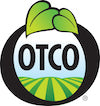The Healing Power of Cinnamon
Cinnamon, one of the oldest spices known to man, has long been used not just as a flavor enhancer, but also for its medicinal qualities. Cinnamon is an antioxidant, and its essential oils have strong antibacterial and anti-fungal properties. It has also been used centuries over for its qualities as a sedative and pain reliever.
Help for Your Heart, Inflammation, and Diet
Cinnamon strengthens the cardiovascular system, shielding the body from heart-related disorders and acts as a blood-thinning agent, which increases circulation. Because of its high levels of calcium and fiber, cinnamon also helps prevent against heart diseases, including coronary artery disease and high blood pressure.
The natural blood thinning and anti-inflammatory compounds in cinnamon have also proven to be useful in reducing the pain and inflammation associated with arthritis.
Seasoning high-carb foods with cinnamon may also lessen the “carb effects” on blood sugar, which is great news for those who struggle with diabetes. Cinnamon slows the rate at which the stomach absorbs food, thus lessening the spike in blood sugar after eating.
According to the Mayo Clinic’s website, studies also have shown that just 1/2 tsp. of cinnamon included in a daily diet can lower LDL (the “bad”) cholesterol, triglycerides and total cholesterol levels.
The Nose Knows
With its distinct and wonderful aroma, cinnamon also has been shown to boost brain activity. The aromatic properties of cinnamon are also beneficial to your health. It has been considered an effective aid for treating depression, anxiety and tension.
You can burn a few drops of the essential oils of cinnamon in an oil diffuser or simply put a few drops on a cloth and breathe in the aroma when these feelings set in. Of course, cinnamon will not replace anxiety or depression medication for those who need it. However, for those days when you’re just in a funk, it might just do the trick.
For nervous tension, try taking a pinch of ground cinnamon mixed with a teaspoon of honey each night before bed.
Using Cinnamon as an Aid for Colds, Fevers and Headaches
Because of the warming properties associated with cinnamon, it has been used for centuries in traditional Chinese and Indian medicine to aid the common cold. Mix one tablespoon of lukewarm honey with 1/4 tablespoon of ground cinnamon and take daily.
This process will cure most chronic coughs and colds and aid in clearing the sinuses. Cinnamon has also long been considered a fever reducer. Boil a few sticks of cinnamon in water, filtrate and drink. It can reduce a fever in as little as two hours.
You can also mix a fine paste of cinnamon and water and apply to your temples and forehead for relief of tension headaches and migraines.
Quick Help for Stomach Troubles
Sipping on hot water with a few drops of cinnamon oil provides relief for gas and heartburn. You can also sprinkle cinnamon in two tablespoons of honey and take prior to meals to relieve acidity and aid in digestion of food.
A simple cure for a stomach ache is to dissolve 1-1/2 tsp. ground cinnamon in 1 cup warm water, cover and let it sit for 15 minutes. Then drink the mixture as a tea.
It Can Help with Hygiene, Too
As an alternative to expensive facial astringents, try mixing some ground cinnamon and with lime juice and applying it to blackheads, pimples and acne spots every evening — not only will it help eliminate the acne, but it will help reduce the oil formed on your face.
Mixing ground cinnamon with warm water creates a gargle that promotes the relief of inflamed gums and bad breath. Simply gargle with the mixture twice each day.
General Health and Miscellaneous Tips
A few drops of cinnamon oil on a warm compress works wonders for relieving muscle pain, as well as menstrual cramps.
Cinnamon has been shown to increase lactation in new breastfeeding moms, and can even ease the pains of labor. If you are pregnant or lactating, consult your physician or lactation consultant on the proper dosage.
To aid in the relief of asthma symptoms, you can mix 1 tsp. honey with 1/2 tsp. cinnamon, and take it nightly.
For those of us who suffer from insomnia, try mixing 1/2 tsp. of cinnamon and 1 tsp. of honey to warm milk, and drink it before bed.
Itching from insect bites can be relieved with a paste of honey and cinnamon.
Go on and Try It
Just one gram of cinnamon contributes about a full gram of fiber to a daily diet. It also contains important minerals such as calcium, manganese and iron. Instead of running out and grabbing some hot cinnamon rolls, there are some great healthy ways to incorporate more cinnamon in your diet including: sprinkling it on apple slices, oatmeal, yogurt, rice pudding or grilled pineapple. You can also add some to your coffee, tea or hot chocolate or try this Orange Cinnamon Breakfast Boost.
Additional Reading:
Top 7 Spices That Fend Off Disease
4 Warm, Aromatic Spices to Heat Up Tasty Treats
Leave a comment
Comments will be approved before showing up.



